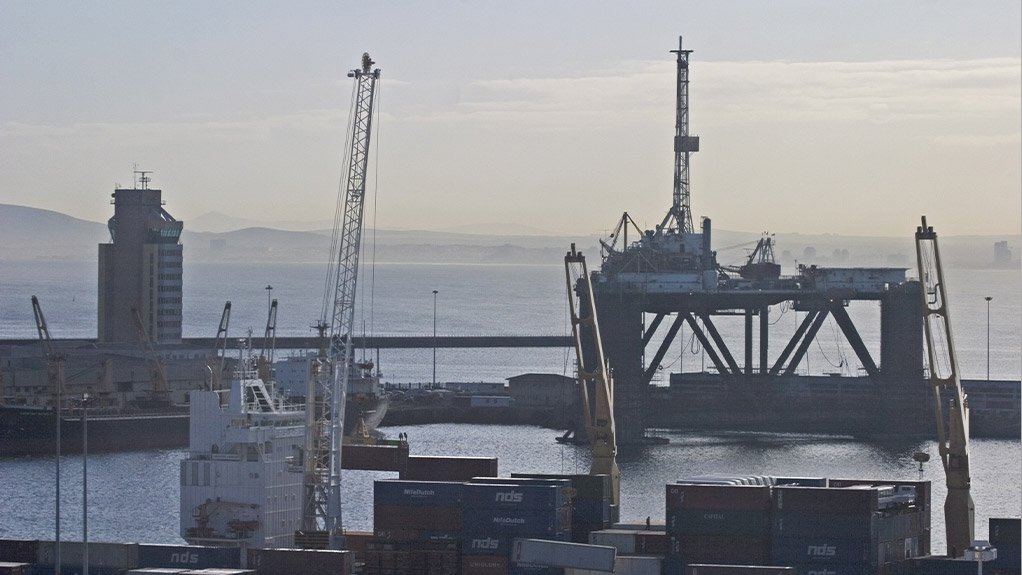Hydrogen a suitable greener alternative



CRAIG MORKEL Imported LNG can start developing gas market
GAS IMPORTS imported LNG should be used as a transitional feature
Hydrogen will, in the future, be a suitable substitute for natural gas to support decarbonisation, says South African Oil and Gas Alliance (Saoga) Gas Economy Leadership Group chairperson Craig Morkel.
However, the development of the hydrogen industry first requires that a gas market be developed.
“The best way to do this is to first use imported liquefied natural gas (LNG) before transitioning to local and regional natural gas and finally hydrogen,” says Morkel.
The upstream industry is unlikely to invest in either the necessary exploration for gas, the development of the local natural gas industry or the development of the hydrogen industry unless there is a convincing, existing market for gas.
The use of dual or multifuel devices such as dual fuel gas turbines, internal combustion engines and gas burners could allow for users to gradually switch from “dirty fuels” such as diesel, through a cleaner fuel such as natural gas to finally run on hydrogen or a mixture of hydrogen and natural gas, he explains.
When there is sufficient scale, hydrogen can then also be used to electrify and decarbonise South Africa’s energy mix even further. This includes hydrogen’s application in fuel cell electric vehicles, green ammonia and green steel.
The transition from dirtier fossil fuels to natural gas would enable the later deployment of hydrogen at scale to achieve the Nationally Determined Contributions (NDCs) to net zero carbon by 2050 that government will make at the twenty-sixth United Nations Framework Convention on Climate Change Conference of the Parties (COP26) in November this year.
Gas has a further role to play in the decarbonising of the global economy as it enables the increased deployment of renewable energy, such as solar photovoltaic and wind energy.
Gas is able to provide the necessary electricity when renewable power generation is not enough to meet electricity demand, while having the ability to be turned off and save fuel when renewables can meet demand, says Morkel.
LNG
Morkel believes that imported LNG should be used as a transitional, rather than a permanent, feature of South Africa's future gas market with the idea that the market later transitions to local gas and finally hydrogen.
The Upstream Petroleum Resources Development Bill and the Gas Act Amendment Bill will enable the future development of South Africa’s gas industry.
All types of gas could be supplied to the market simultaneously within the next five to 15 years, resulting in price competition between LNG, regional gas, indigenous gas and hydrogen.
Decisions taken should not lock out any of the opportunities to use the cheapest and cleanest option in the shortest possible time and any infrastructure, such as ports, pipelines and railways, must be designed to enable the foreseeable switch from initial LNG imports to later indigenous gas and hydrogen, Morkel adds.
Lessons from the RMIPPPP
The Risk Mitigation Independent Power Producer Procurement Programme (RMIPPPP) allocated 2 000 MW of power generation capacity for procurement on an emergency basis, which resulted in the awarding of preferred bidder status to 1 220 MW of floating gas power plants and 780 MW to hybrid projects that integrated LNG, liquid petroleum gas (LPG), diesel, heavy fuel oil (HFO), solar, wind and battery energy storage solutions, explains Morkel.
Positive aspects of the RMIPPPP were its adoption of a technology-agnostic eligibility approach for procurement power generation solutions and its having sought to achieve a blended price between cheaper renewable energy and more expensive gas.
The lessons learnt from the RMIPPPP can be applied to the 3 000 MW Gas-to-Power Programme, due for release in December 2021, and the 1 000 MW Komati project to repurpose Eskom’s Komati coal power station with a much cleaner, but similarly thermo-electric, mid-merit gas-to-power plant.
Section 15 of the RMIPPPP’s Implementation Agreement made provision for the procurer or the seller to propose a deviation from the original proposed fuel to an ostensibly cheaper and cleaner alternative fuel after the sixth year of operations.
The fuel supply agreements needed to make provision for such a fuel switch, but future fuel switching solutions were not required.
A deviation proposal to include a switch to indigenous natural gas or hydrogen as an alternative is negatively impacted if the technology used cannot use natural gas or hydrogen without cost-prohibitive retrofits.
Morkel emphasises that stakeholders need to distinguish between decisions made at a project level and a system level.
If any procurer does not enable a switch to cheaper and cleaner alternative fuels at a project level, it becomes infrastructure and environmental issues at a systems level that may negatively impact stakeholders’ ability to honour the NDCs and realise the outcomes of the country’s Economic Reconstruction and Recovery Plan.
Gas industry stakeholders need government and industry bodies, such as Saoga, to collaboratively finalise the relevant gas legislation to facilitate growth in the industry.
In addition, the government needs to introduce hydrogen-specific regulations in preparation for the already planned 4 000 MW of Gas-to-Power procurement opportunities.
“We can and must realise secure, reliable, cheaper and cleaner energy, including its socioeconomic benefits, in the shortest possible time,” concludes Morkel.
Article Enquiry
Email Article
Save Article
Feedback
To advertise email advertising@creamermedia.co.za or click here
Press Office
Announcements
What's On
Subscribe to improve your user experience...
Option 1 (equivalent of R125 a month):
Receive a weekly copy of Creamer Media's Engineering News & Mining Weekly magazine
(print copy for those in South Africa and e-magazine for those outside of South Africa)
Receive daily email newsletters
Access to full search results
Access archive of magazine back copies
Access to Projects in Progress
Access to ONE Research Report of your choice in PDF format
Option 2 (equivalent of R375 a month):
All benefits from Option 1
PLUS
Access to Creamer Media's Research Channel Africa for ALL Research Reports, in PDF format, on various industrial and mining sectors
including Electricity; Water; Energy Transition; Hydrogen; Roads, Rail and Ports; Coal; Gold; Platinum; Battery Metals; etc.
Already a subscriber?
Forgotten your password?
Receive weekly copy of Creamer Media's Engineering News & Mining Weekly magazine (print copy for those in South Africa and e-magazine for those outside of South Africa)
➕
Recieve daily email newsletters
➕
Access to full search results
➕
Access archive of magazine back copies
➕
Access to Projects in Progress
➕
Access to ONE Research Report of your choice in PDF format
RESEARCH CHANNEL AFRICA
R4500 (equivalent of R375 a month)
SUBSCRIBEAll benefits from Option 1
➕
Access to Creamer Media's Research Channel Africa for ALL Research Reports on various industrial and mining sectors, in PDF format, including on:
Electricity
➕
Water
➕
Energy Transition
➕
Hydrogen
➕
Roads, Rail and Ports
➕
Coal
➕
Gold
➕
Platinum
➕
Battery Metals
➕
etc.
Receive all benefits from Option 1 or Option 2 delivered to numerous people at your company
➕
Multiple User names and Passwords for simultaneous log-ins
➕
Intranet integration access to all in your organisation




















